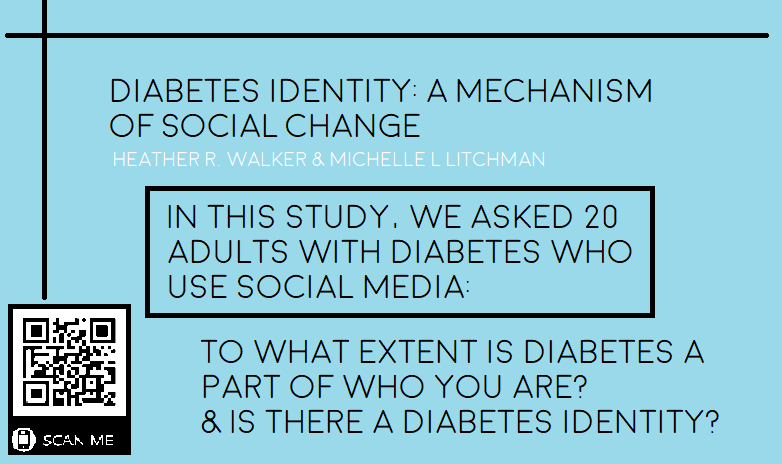Thread. Been contemplating a lot on this recently. In my researching, it seems like 99% (basically all) of the literature on DOCs or Online Health Communities (OHCs) focuses on how participation benefits health. This has always irked me. 1/x #AcademicTwitter #DOC #dsma #hcsm
I get it. And that makes sense. DOCs and OHCs are important because they DO SOMETHING for folks. It isn’t all good all the time, but overall, people seem to benefit in some way by talking to others like them. By sharing their stories. 2/x
What irks me, is that research has yet to move beyond health implications. And, it isn’t because that’s all that is happening there. It’s because it is what health-researchers care the most about. They're asking the questions, and they're all related to individual health. 3/x
As a result, we have a body of literature about DOCs and OHCs that misses something incredibly vital!! 4/x
Yes, we're here because our health looks different than health of able-bodied people. Yes, it helps individuals who participate at that level. BUT, it also moves forward a narrative of change around the perceptions of illness, health, & disability within the wider culture. 5/x
Our patterns of thought are collectively evolving. We're demanding the public see us as whole people. We're overthrowing oppressive stereotypes using hashtags like #DiabetesLooksLikeMe #DisabledAndCute #CripTheVote, etc. This is what isn’t seen, because it isn’t asked about. 6/x
It's time that researchers see OHCs as sites of resistance, of social change. It is time that the social work being done by folks through engaging with others online is recognized fully. Folks ALSO participate in these communities to change their world. 7/x
I promise folks in DOCs and OHCs that as a researcher, I am asking these questions. I see what you’re doing and I am going to do everything I can to elevate your work. You deserve credit for creating such profound change. 8/x
You are powerful and your engagement in online communities is known, at the very least to me, to be indicative of high levels of both personal change and collective change. I know that your tweets about human rights isn’t just a coping mechanism, but a demand for change. 9/x
I see you. 10/x
I encourage other researchers who recognize these rights-based conversations as something separate from individual health to say so here. I encourage you to come out and acknowledge this incredible gap and let folks in OHCs know you see them too. 11/11.
• • •
Missing some Tweet in this thread? You can try to
force a refresh





